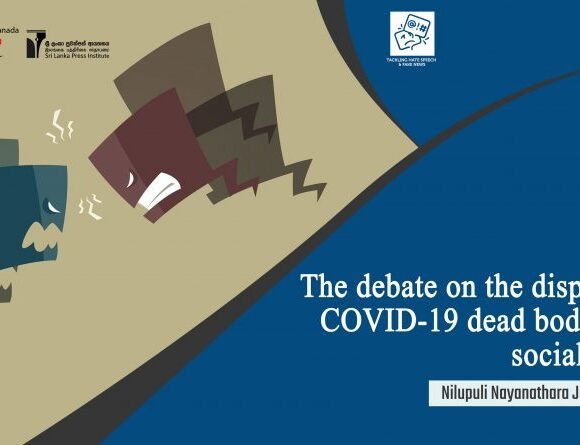
Provincial Councils, the Covid-19 Pandemic and the People
C. J. Amarathunga
It has been over a year since Sri Lanka first faced the Covid-19 pandemic. At the time of writing, the country continues to be entrenched in a severe crisis. People’s lives are almost at a standstill due to constant closures and travel restrictions. Daily wagers have their revenue streams blocked. On the other hand, the supply of essential food and other necessities to the people has also become an issue. Although the government has speculated various plans, they have not been implemented successfully at the ground level. Reports from many parts of the country suggest that relief efforts lack formality.
On the treatment front, it is not an exaggeration to say that Covid-19 patients have suffered heavily in recent months. Government propaganda through the media is not reflected at the ground level. Even the transfer of Covid-19 patients for treatment doesn’t seem to happen methodically anymore. Confirming this, the President of the Association of Public Health Inspectors informed the media that Public Health Inspectors should not be asked to direct patients to hospitals, and that they were unable to do so. The use of public and private vehicles to transport Covid-19 patients is also dangerous. Such transfers should essentially be done through an ambulance service. Initially, the ambulance services were effective, but later, some ambulances complained that hospitals did not accept the patients they delivered. Although a plan to provide essential food items to home-quarantining patients was initially in place, it is currently not functioning properly.
Confusions that are no different can also be seen in the vaccination process. In places that seemed not to have a plan or an initiative, politicians intervened. In other places, they delivered orders to government officials and caused disturbances. People who witnessed such interruptions claim that the whole process of dealing with the pandemic has turned into chaotic farce. There is no political leadership with authoritative power to lead the Covid-19 relief programme at the local level. Some politicians stepping up to interrupt the vaccine programme do so without authority or responsibility. They exploit the situation to set in place their campaigns to favour their followers.
The ongoing pandemic-related relief and health crisis at the ground level highlights the significance of the Provincial Councils as a mechanism for village-level activities. People have begun to openly state that their suffering would have been less had their local representatives still been in office. In the course of conversation they often relate to a former chief minister or a capable local government representative. Some of these local leaders still rally people around them and engage in social projects. But, with the Provincial Councils remaining dissolved, they lack formal authority at present.
The Provincial Council system was implemented in Sri Lanka in 1987 as a clause of the Indo-Lanka Accord. It was introduced to meet up with the demands of the Tamil people in the North and East for a solution to the ethnic problem. From the beginning, there was opposition to these councils and their abolition was a main slogan of the 1988-89 political uprising. However, over time, as the public and many politicians recognized its role, the Provincial Councils became a crucial part of our political structure. Powerful politicians like Bertie Dissanayake left cabinet ministerial posts and went to the Provincial Council because the position helped to serve the people while being closer to them. Even today, many politicians try to get elected to the Provincial Councils because, irrespective of privilege, it allows them a solid public base.
The debate regarding the pros and cons of the Provincial Councils is a continuing one. However, the support system the Provincial Councils could have set in place during the pandemic cannot be ignored. Unfortunately, the Provincial Councils are not active at the moment. The superficial reason for this is the decision to hold the Provincial Council elections under a new system. However, there are other reasons for this, including the struggle for political power. The ongoing effort to abolish the Provincial Councils is an additional manoeuvre. All in all, an important mechanism that could have been efficiently used to manage the Covid-19 pandemic in the provincial and village levels remain inactive. As a result, the government has had to involve non-relevant parties in civil affairs.
Some contend that even in the absence of an active Provincial Council, the Governors are already handling the council’s workload effectively. However, the Governor only executes the day-to-day activities of the Provincial Council. His office is incapable of providing political leadership at the ground level work. As a body, the Provincial Council has the power and ability to direct the state mechanism of the province. The Chief Minister and the Provincial Council could duly direct Government Agents, Divisional Secretaries, public officials, and the state machine as a whole. The other most important thing is the close relationship the council maintains with the people of the province. Councilors have a local understanding of the people’s livelihoods, their problems, as well as the solutions they require.
Considering all this, it appears that we are currently facing the unfortunate situation of having the Provincial Council system inactive in a crucial time when the country is facing a global pandemic. The Provincial councils would have been able to carry out the Covid-19 pandemic response much more effectively from treating patients to providing relief to the distressed people. This demanding moment emphasizes that a decentralized institutional structure at the grassroots level is more important in crisis management than politically-marketable slogans. Therefore, the need to further strengthen and maintain this system has to be understood and acknowledged.
மாகாண சபைகள், கோவிட் -19 பெருந்தொற்றுநோய் மற்றும் மக்கள்
පළාත් සභා කොවිඩ් වසංගතය සහ ජනතාව








